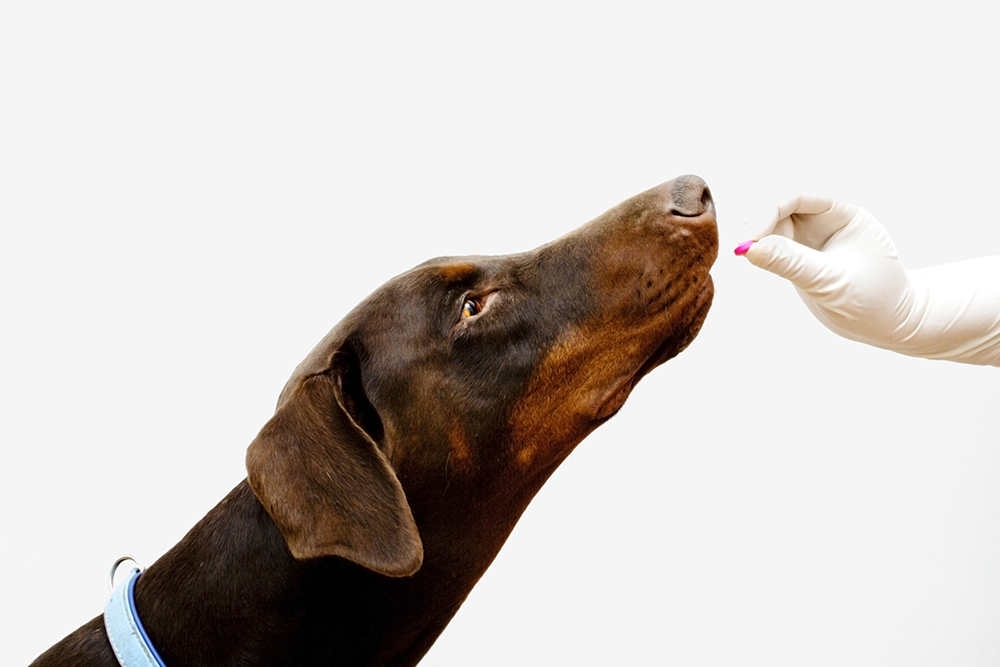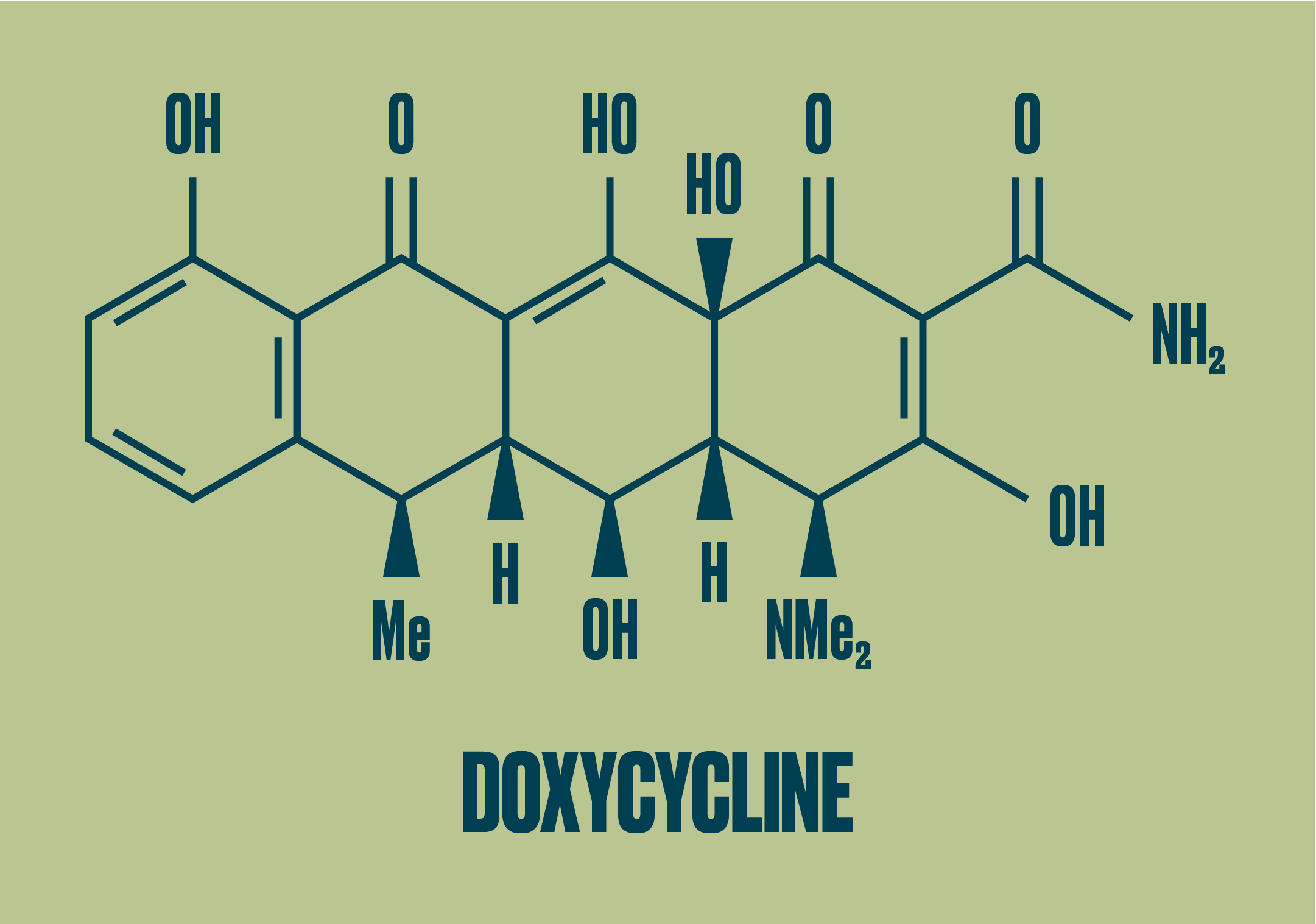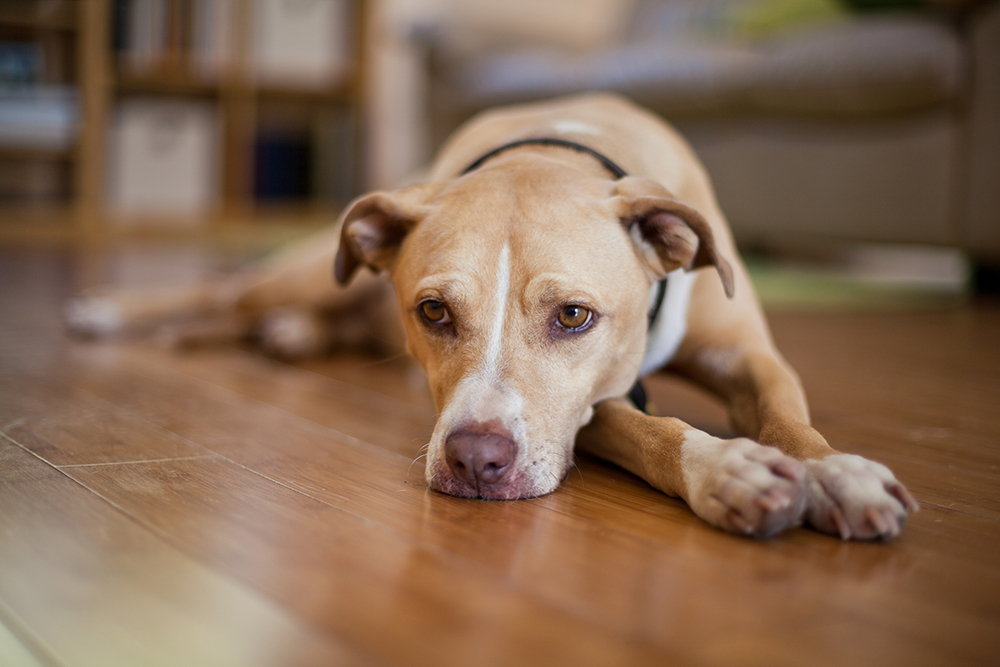Learn : Health & Wellness
Doxycycline for Dogs
Doxycycline. A mouthful to say, but much more common than it sounds. As a routinely prescribed antibiotic used in veterinary medicine mainly to fight off or prevent infections, chances are you’ll encounter doxycycline at some point in your dog’s life.
What is doxycycline?
Doxycycline is a tetracycline-class antibiotic, which are broad-spectrum antibiotics, meaning they’re effective against many different types of bacteria.
Doxycycline is also highly fat soluble (as opposed to water soluble). When it comes to pharmaceuticals, this can be beneficial, allowing for absorption into the animal’s tissues, which can help the antibiotics reach the infection site faster. It also causes doxycycline to be longer-acting, too.
When is doxycycline prescribed for dogs?
Doxycycline in dogs works similarly to how it does in humans, fighting off infections by stopping the growth of bacteria.
Infected wounds, tick-borne infections (lyme disease, Rocky Mountain spotted fever), common bacterial infections (respiratory, urinary tract), and even periodontitis (gum infection) can all be treated with doxycycline.
Doxycycline is also used to help treat heartworm disease in dogs. It’s even suspected to have some additional therapeutic effects, showing promise as a treatment for canine osteoarthritis by helping protect the cartilage in joints, and is further being investigated for its anticancer properties.
Doxycycline has a broad range of applications, and a number of different brand names, popular ones include:
- Vibramycin
- Oracea
- Monodox
- Periostat
- Doryx
- Acticlate
- Adoxa
- Doxirobe
How do I administer it?
Doxycycline can be given to dogs a number of ways, and the chosen method will likely depend on what’s available, what’s being treated, and what your dog is likely to accept.
- Pill - you may be prescribed a tablet or capsule form of doxycycline.
- Oral suspension/syrup - liquid doxycycline can also be given by mouth at home, with precise doses measured via syringe or pipette. Some even come in flavors.
- Gel - for oral infections, a gel form may be prescribed and rubbed onto the gums or injected under the gums.
- Chew - specialized pharmacies may be able to make special flavored chew treats to help conceal the medication for more stubborn dogs.
- Injection - your vet may give your dog a long-acting shot of doxycycline at the clinic. It’s less common when longer course treatments are needed, as it often requires repeated visits.
Dosing doxycycline for dogs
A common dosing guideline is 5 - 10 mg/kg body weight once daily, usually lasting for one to two weeks ― but please follow the recommendation of your veterinarian.
Lower doses (< 5 mg/kg per day) have been recommended for gum infections and preventative measures, while a higher dose (10 mg/kg twice daily) or longer course (> 2 weeks) may be advised for more severe infections.
Dosing guidelines must take into account what doxycycline is treating, as well as your dog’s size and health status. Additionally, the veterinarian must consider the size of available tablets or the concentration of the doxycycline suspension.
It’s clear, dosing is complicated, so leave it to your veterinarian.
Pay close attention to how much, how often and for how long. And be sure to follow proper storage guidelines to ensure potency.
Do not give more than directed and do not stop giving it earlier than instructed, even if your dog appears to be feeling better.
Are there any side effects?
Doxycycline is safe for dogs — side effects are generally mild and may include:
That said, be sure to review all current medications and supplements with your veterinarian so they can ensure no possible drug interactions. Some medications may reduce the effectiveness of doxycycline, so your vet may recommend spacing the medications by a few hours or prescribe a different antibiotic entirely.
Also note, that cats given doxycycline tablets should have water given after administration to prevent a rare complication of a stricture in the esophagus.
If you notice any adverse effects in your dog, alert your vet immediately or contact a 24/7 veterinarian emergency hospital for severe reactions that arise after-hours.
We hope that whatever the reason your dog is taking doxycycline they feel better soon!





 How to Induce Vomiting in Dogs
How to Induce Vomiting in Dogs
 Bone Broth for Dogs
Bone Broth for Dogs
 Shrinking Canine Lipomas
Shrinking Canine Lipomas